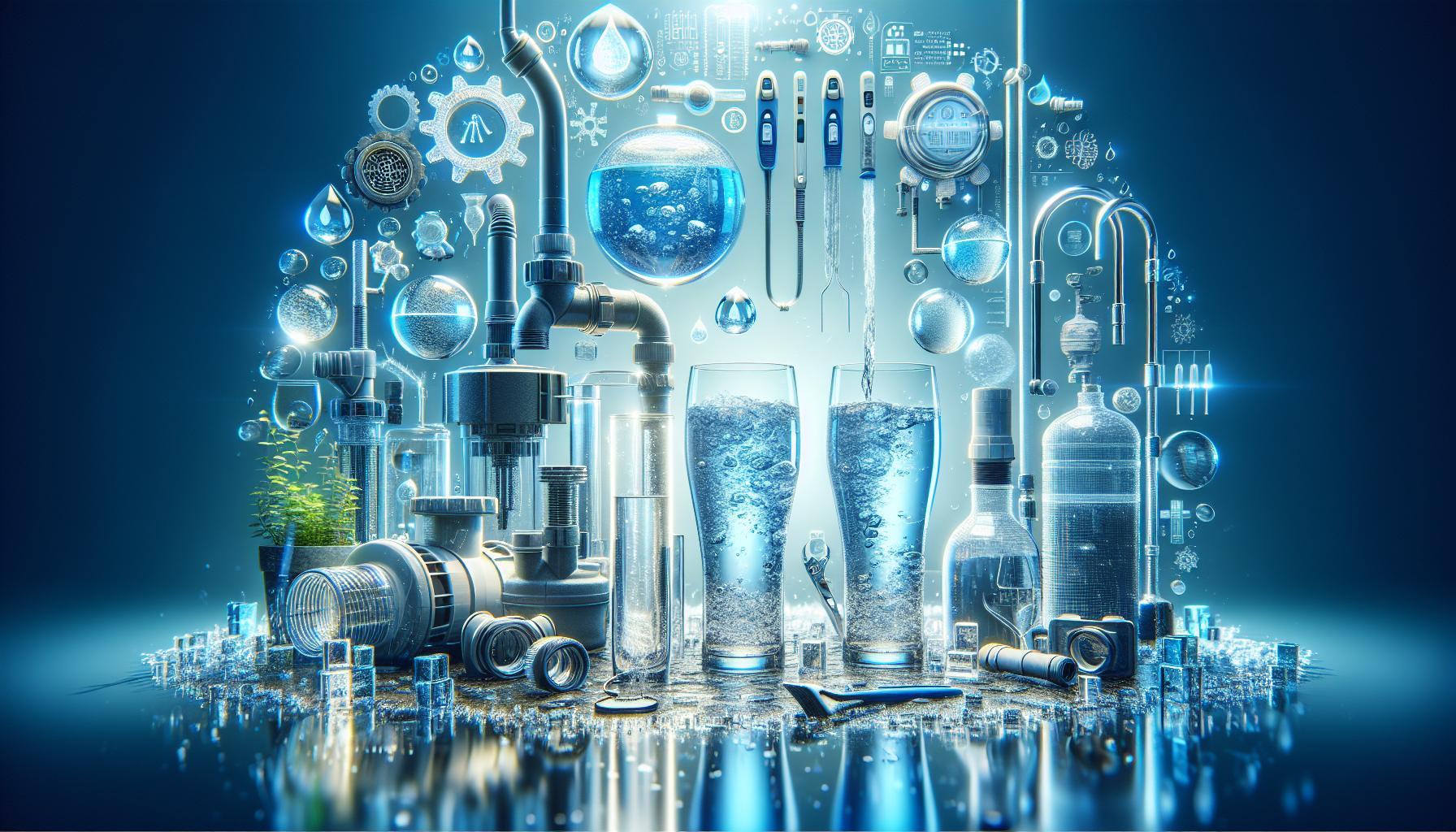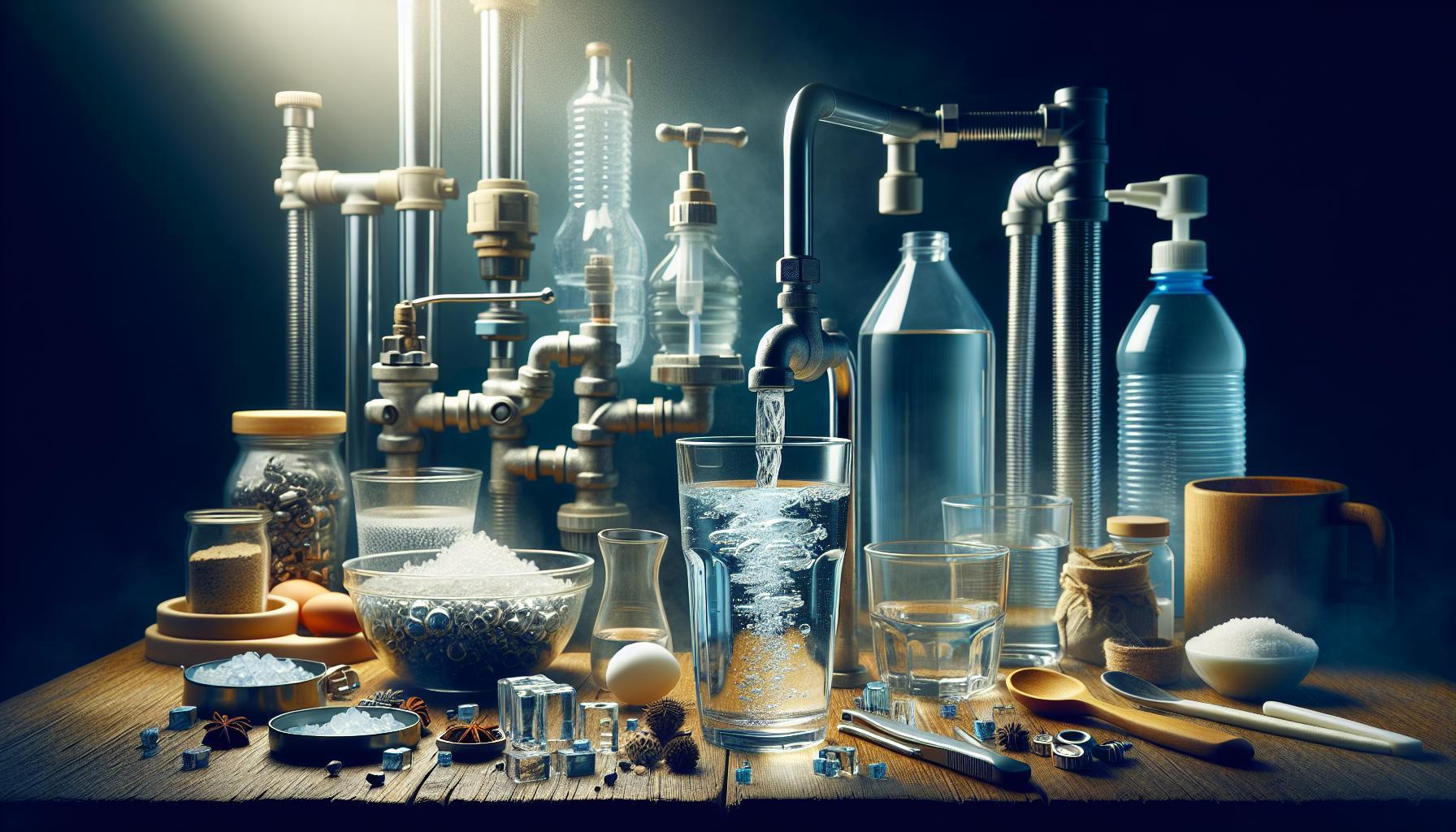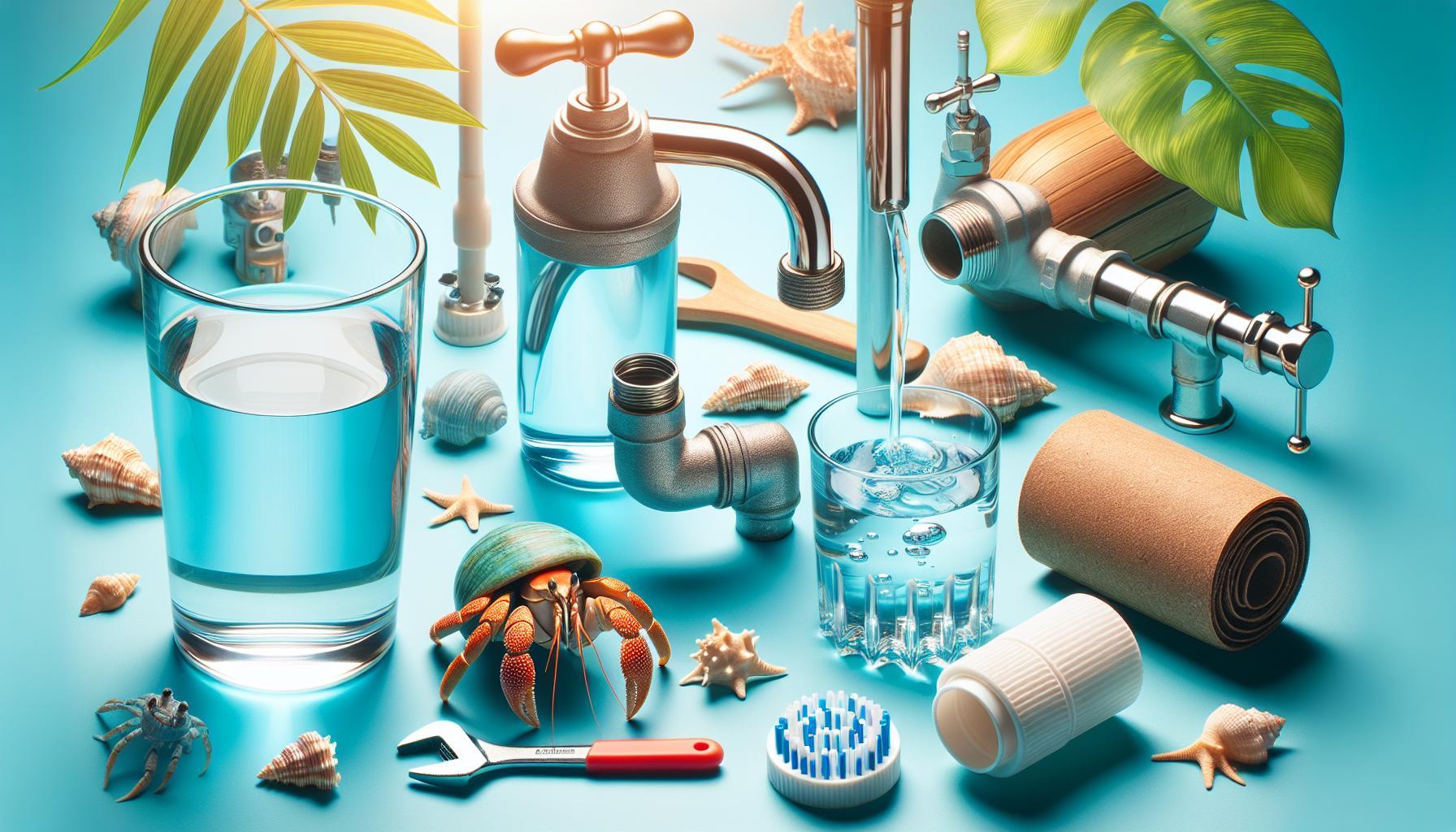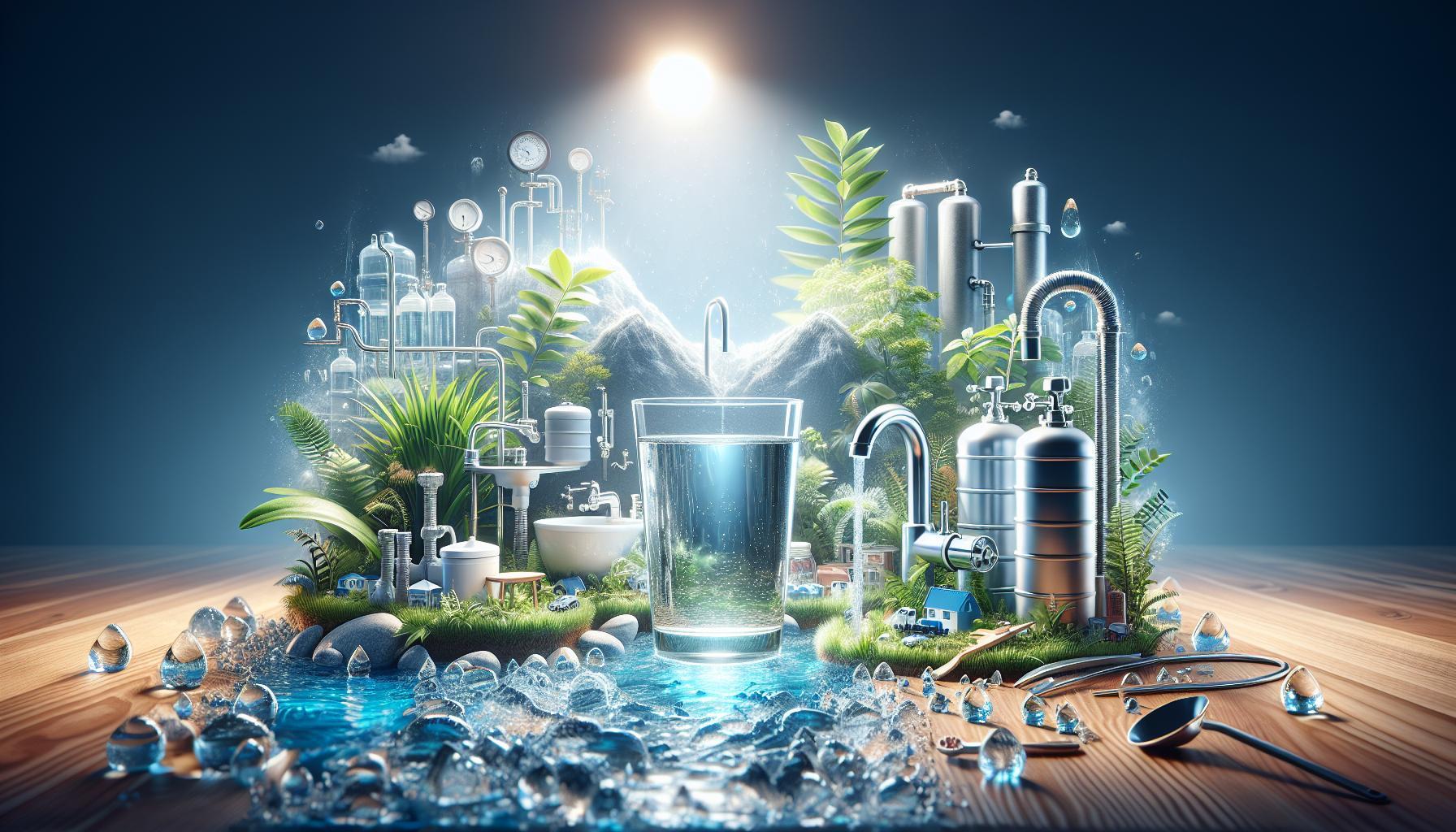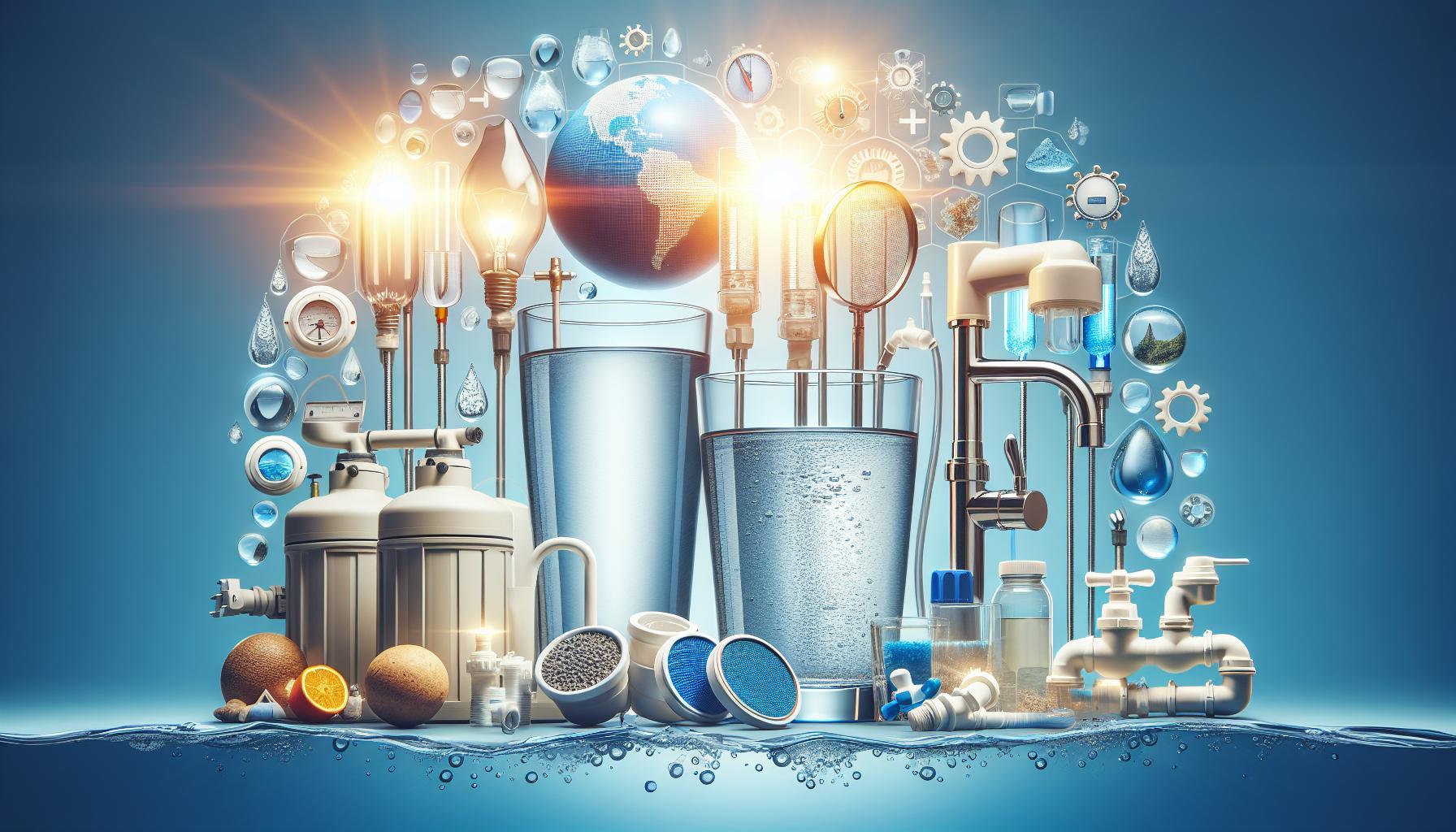As the trend of hydrogen-infused beverages gains momentum, many wonder: does hydrogen water have a distinct taste? This article explores the flavor profile of hydrogen water, delving into its potential effects on drinking experience and health. Discover how this innovative drink might refresh both your palate and your wellness routine.
Understanding Hydrogen Water: What Sets It Apart
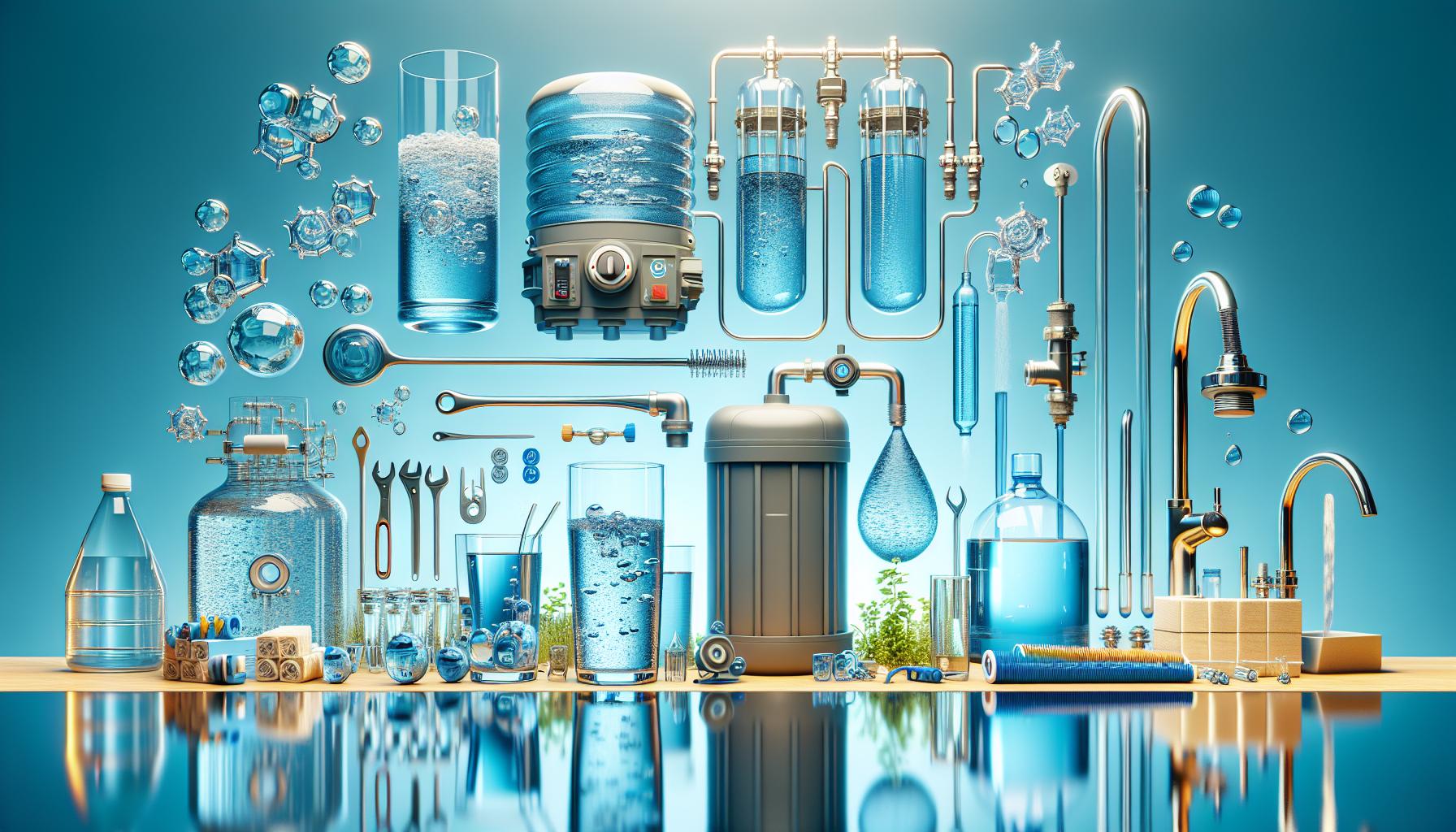
The surge in popularity of hydrogen water has sparked curiosity about its distinct characteristics and potential benefits. Unlike regular water, hydrogen water is enriched with molecular hydrogen (H2) gas, making it a unique player in the wellness space. This added element not only differentiates its chemical composition but is also believed to endow the water with antioxidant and anti-inflammatory properties, which can support overall health and enhance athletic performance[[1](https://www.everydayhealth.com/diet-nutrition/what-is-hydrogen-water-and-should-you-be-drinking-it/)][[2](https://www.uclahealth.org/news/article/hydrogen-water-good-you)].
When it comes to the sensory experience, many individuals wonder, “Does hydrogen water taste different? What to expect?” Generally, the infusion of molecular hydrogen does not alter the taste significantly, making it comparable to regular water. However, some enthusiasts report that it may have a slightly different mouthfeel, often described as being crisper or smoother. This subtle difference can enhance the drinking experience, making it enjoyable for those who prefer new tastes without straying far from the familiar.
To understand what sets hydrogen water apart, consider these key differences and benefits:
- Hydrogen Injection: The process of infusing hydrogen into water, typically under pressure, creates a supersaturated solution that is packed with tiny hydrogen molecules, making these easily accessible to our bodies[[3](https://pmc.ncbi.nlm.nih.gov/articles/PMC10816294/)].
- Potential Health Benefits: Advocates claim that hydrogen water can boost energy levels, reduce inflammation, and improve recovery times after workouts, making it a popular choice among athletes and health-conscious individuals[[1](https://www.everydayhealth.com/diet-nutrition/what-is-hydrogen-water-and-should-you-be-drinking-it/)].
- Scientific Interest: Researchers are increasingly exploring the biological effects of hydrogen water, particularly its antioxidant properties, which may help combat oxidative stress and promote cellular health[[2](https://www.uclahealth.org/news/article/hydrogen-water-good-you)].
Understanding these aspects not only enhances your knowledge of hydrogen water but also helps determine whether it aligns with your health goals. As you explore this innovative beverage, you may want to consider integrating it into your routine, especially if you’re seeking a refreshing option that supports your wellness journey.
The Flavor Profile of Hydrogen Water: A Taste Test
There’s a growing buzz around hydrogen water, not just for its purported health benefits but also for its unique taste profile. If you’ve ever wondered whether hydrogen water delivers a flavor experience that differs from regular H2O, you’re not alone. Many tasters report subtle distinctions that can influence your overall experience, enhancing your hydration ritual in enjoyable ways.
When it comes to taste, hydrogen water is often described as having a crisp and refreshing quality, which can depend on several factors such as the source of the water, the method of infusing hydrogen, and even storage conditions. While it generally remains close to the flavor of regular water, some enthusiasts note the following:
- Minerality: Depending on the source, hydrogen water may retain certain mineral flavors that can enrich its taste.
- Clean and Crisp: Users often describe the sensation as lighter and cleaner than typical tap or bottled water.
- Subtle Sweetness: Some tasters perceive a hint of sweetness, which can make the drinking experience more pleasant.
Factors Influencing Taste
The flavor profile of hydrogen water is not uniform and can vary based on how the hydrogen is infused. For instance, some products infuse hydrogen using electrolysis, while others rely on magnesium sticks, which can introduce different flavors. Below is a simple comparison of popular methods:
| Method | Flavor Notes |
|---|---|
| Electrolysis | Generally cleaner taste, potentially retains original water minerals. |
| Magnesium Sticks | May impart a slight metallic or mineral flavor due to magnesium interaction. |
| Charged Bottles | Varies widely, often a lighter and more refreshing profile. |
For anyone looking to explore this intriguing beverage, a taste test among different brands and methods can be a fun and informative experience. Consider gathering a few different hydrogen water products and comparing them with standard bottled or filtered water. Take note of the flavor variations, and pay attention to how they make you feel – both in taste perception and hydration levels. This hands-on approach not only answers the question, “Does hydrogen water taste different?” but also enhances your overall appreciation for this innovative hydration option.
How Hydrogen Water is Made: The Science Behind the Sip
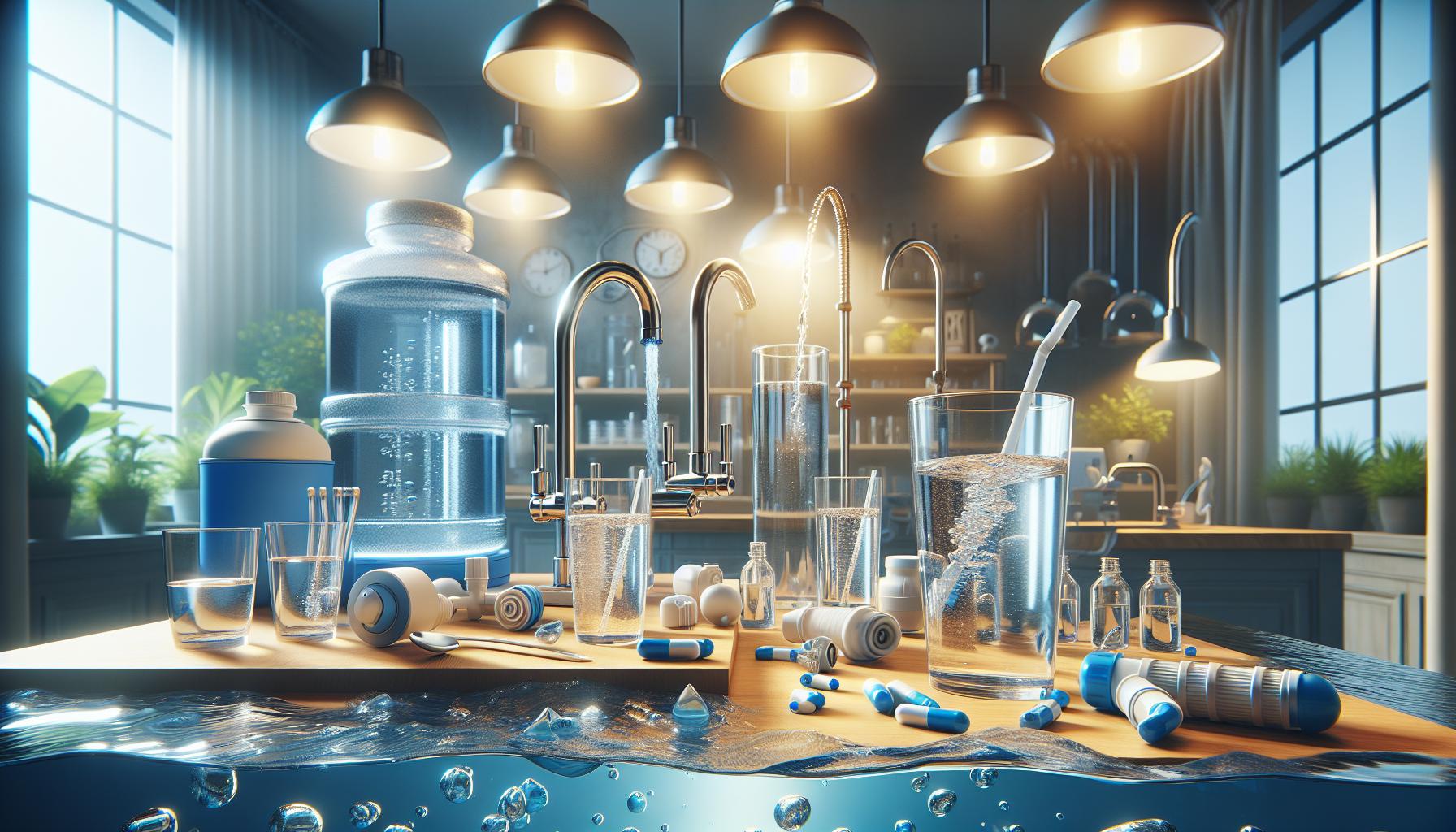
When you open a bottle of hydrogen water, you’re not just pouring a regular beverage; you’re indulging in a product crafted through precise scientific methods. The process of creating hydrogen water involves incorporating extra hydrogen gas into regular water, resulting in a drink that claims unique health benefits and distinct properties. Understanding how this innovative drink is made can enhance your appreciation for what you’re sipping.
At its core, the creation of hydrogen water revolves around two primary methods: electrolysis and infusion.
Electrolysis
Electrolysis is a popular method for producing hydrogen water, employing an electrical current to split water molecules (H2O) into hydrogen (H2) and oxygen (O2). This method ensures a controlled release of hydrogen, which can dissolve efficiently into the water. Here’s how it generally works:
- The process begins with pure water that is subjected to an electric current.
- This current breaks down water into hydrogen and oxygen gases at the electrodes.
- As hydrogen bubbles form, they are captured and infused back into the water.
This technique allows for creating hydrogen-rich water on demand, often seen in countertop devices designed for household use.
Infusion
An alternative method is infusion, which involves directly adding hydrogen gas into bottled water. This method can also be employed in larger-scale production.
- Hydrogen gas is infused into water under pressure.
- This technique can create bottled hydrogen water with high concentrations of hydrogen.
- It requires specific bottling techniques to ensure that hydrogen remains dissolved until you enjoy your drink.
Understanding these methods provides insight into why hydrogen water may taste different from regular water. The increased hydrogen content leads to a unique mouthfeel, often described as silky or lighter, which can set it apart from traditional beverages.
For those curious about the sensation of hydrogen water, it’s important to manage expectations. While it may not have a pronounced flavor, the experience can include distinct effervescence and freshness. Whether you choose to create your own hydrogen water at home or purchase it pre-made, recognizing the science behind its production can deepen your appreciation and inform your choices.
Comparing Hydrogen Water to Regular Water: What’s the Difference?
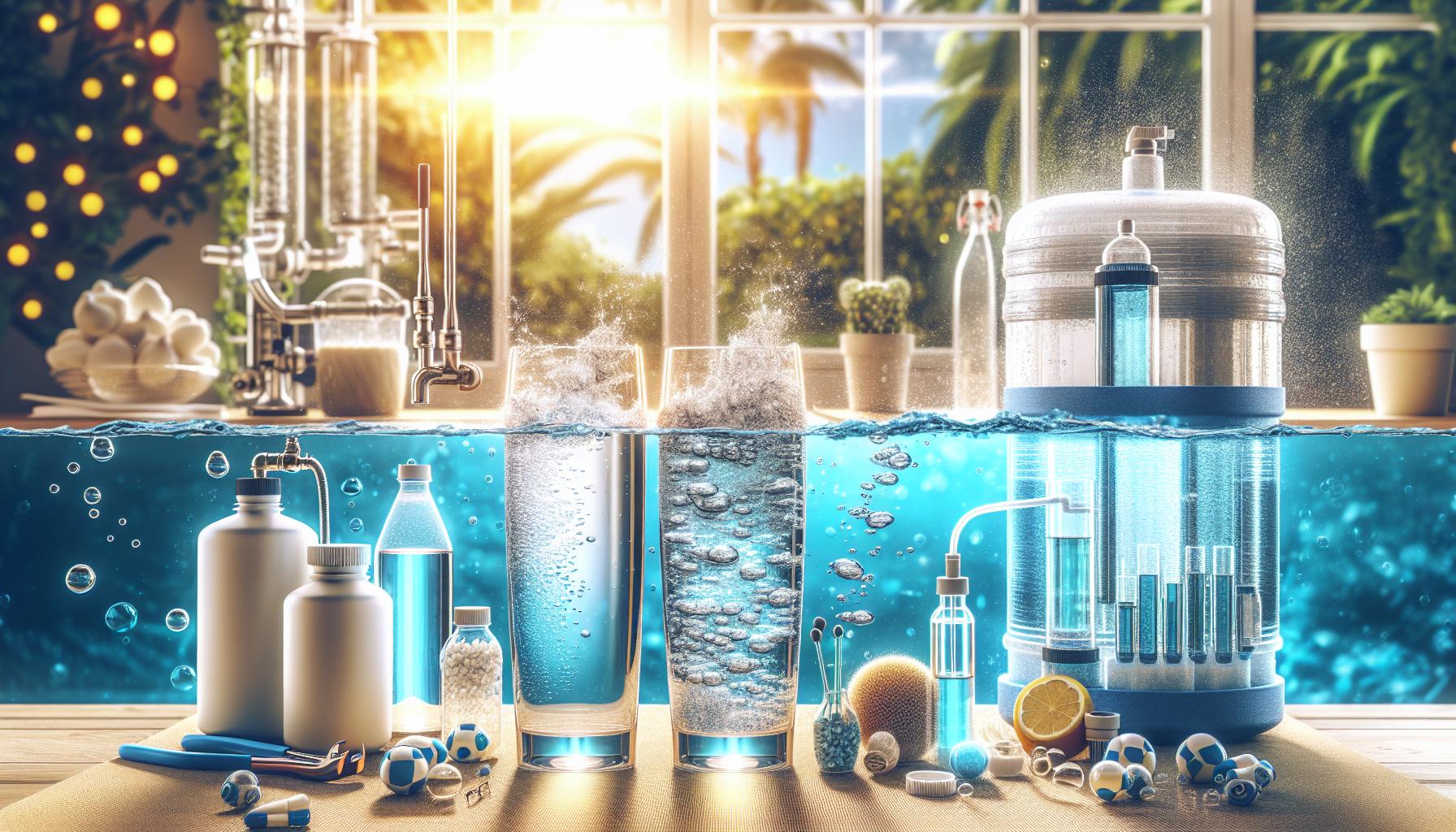
While most people readily recognize the refreshing quality of regular water, the unique properties of hydrogen water are stirring interest among health enthusiasts and athletes alike. Unlike ordinary H2O, hydrogen water is enhanced with additional hydrogen molecules, which proponents suggest can lead to various health benefits, such as improved energy levels and reduced inflammation. This distinction raises an important question: how does hydrogen water compare to its conventional counterpart, and what implications does this have for everyday hydration choices?
One key difference lies in the composition and potential health effects. Regular water is essential for hydration and bodily functions, but hydrogen water claims to offer extra advantages due to its higher hydrogen content. This additional hydrogen can act as an antioxidant, potentially aiding in the reduction of oxidative stress within the body. Users often report noticeable differences in energy levels and recovery times when consuming hydrogen-infused beverages compared to regular water. However, it’s crucial to remember that while some studies indicate potential benefits, more rigorous research is needed to substantiate these claims.
It’s also interesting to note how these two types of water may affect taste perceptions. While regular water typically has a neutral taste, hydrogen water enthusiasts describe it as having a slightly different mouthfeel or a crisp, refreshing sensation. This experience can vary based on the infusion method and the concentration of hydrogen. As a result, those exploring hydrogen water should be prepared for a potentially unique tasting experience, which aligns with the question: Does Hydrogen Water Taste Different? What to Expect when transitioning from standard water sources.
To help elucidate the differences further, consider the following table highlighting key aspects of hydrogen water and regular water:
| Characteristic | Regular Water | Hydrogen Water |
|---|---|---|
| Composition | H2O | H2O + Dissolved Hydrogen Gas |
| Taste | Neutral | Slightly Crisp, Refreshing |
| Health Benefits | Hydration | Potential Antioxidant Effects |
| Preparation | Available Everywhere | Specialized Systems Required |
Ultimately, choosing between hydrogen water and regular water depends on personal preferences and health goals. For those curious about the purported benefits of hydrogen water, it might be worth a taste test to see if the flavor and potential effects resonate, while always ensuring that hydration remains a priority.
The Impact of Hydrogen on Water’s Taste and Texture
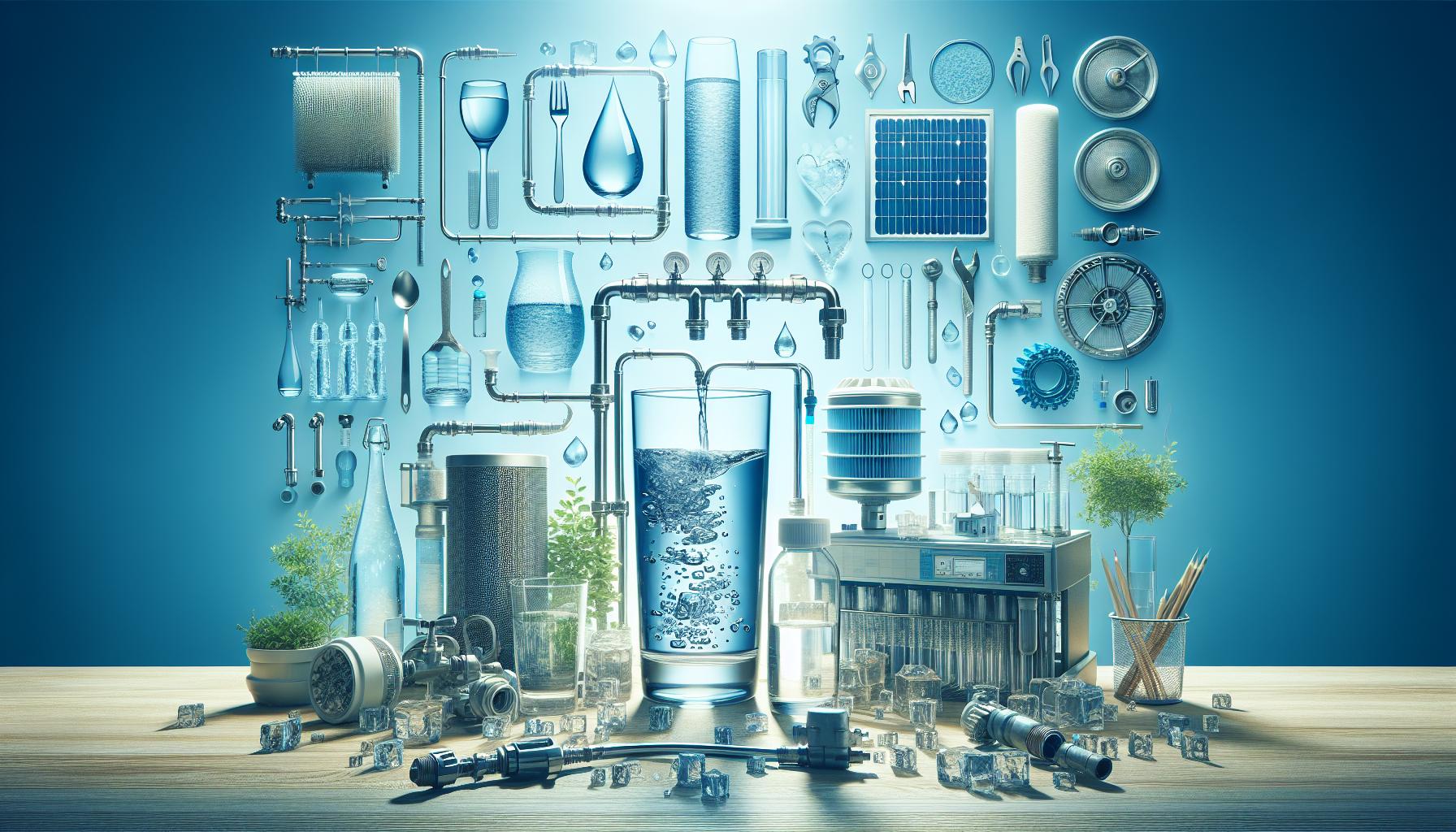
The incorporation of hydrogen gas into water creates a unique blend that is garnering attention not just for potential health benefits but also for its sensory attributes. While regular water is typically neutral in taste and texture, hydrogen-enriched water presents a subtle yet interesting shift that some individuals find refreshing. The infusion of molecular hydrogen (H2) might not dramatically alter the basic taste profile of water, but many users report a perception of increased smoothness and a crispness that distinguishes it from standard water.
Flavor Perception
When experimenting with hydrogen water, you’ll likely discover that it maintains the familiar taste of H2O but with nuanced enhancements. The key aspect to note is that hydrogen gas is practically flavorless. However, the process of infusing hydrogen may lead to a perception of cleaner and more revitalizing water. This sensory experience can be attributed to the smaller molecular structure of hydrogen, which might contribute to a heightened sense of clarity on the palate.
Texture Experience
The texture of hydrogen water also enhances the drinking experience. Many users describe it as having a lighter mouthfeel compared to regular water. This is often due to the microbubbles formed during the hydrogenation process, which can create a sensation of effervescence without the carbonation found in fizzy drinks. Here are some characteristics you might notice:
- Light and Smooth: The microbubbles provide a sense of smoothness, making it feel less dense.
- Refreshing Quality: Many find the hydrogen infusion gives a more invigorating experience while hydrating.
- Mouthfeel: The subtle effervescence can enhance enjoyment, making it feel almost sparkling.
In practical terms, if you’re curious about how this water compares with traditional hydration methods, consider conducting a taste test with friends or family. Provide them with samples of hydrogen water alongside regular water and ask them to note differences in taste and texture. Such an exercise can provide firsthand insights into how hydrogen-infused water might complement your hydration routine, enhancing not only your wellness but also your enjoyment of the experience itself.
Tips for Best Enjoyment: How to Serve and Store Hydrogen Water
When it comes to enjoying hydrogen water, how you serve and store it can significantly impact the overall experience, including any subtle differences in taste. While many people wonder, “Does hydrogen water taste different?” the truth is that proper handling amplifies its benefits and maximizes your enjoyment. To help enhance your hydrogen water experience, here are a few essential tips for serving and storing this innovative beverage.
Serving Suggestions
To retain the effervescent qualities and benefits of hydrogen water, consider these serving tips:
- Chill Before Serving: For a refreshing taste, chill the hydrogen water in the refrigerator before consumption. Cold temperatures not only enhance the flavor but also provide a pleasant sensory experience.
- Use Quality Glassware: Serving hydrogen water in high-quality glassware can elevate the experience. Opt for clean, clear glasses to appreciate the clarity of the water, which reflects its purity.
- Avoid Metal Containers: Using metal bottles or cups can negatively affect the hydrogen concentration. Instead, choose glass or BPA-free plastic to maintain the water’s integrity.
- Infusions for Variety: If you find yourself wondering if hydrogen water is bland, consider infusing it with natural flavors. A slice of lemon, fresh mint leaves, or a few berries can add a delightful twist while keeping the focus on the refreshing quality of the hydrogen water.
Storing Hydrogen Water
The way you store hydrogen water greatly influences its longevity and effectiveness. Here are some crucial tips:
- Airtight Containers: Always use airtight bottles or jars. This helps to minimize hydrogen loss and keep the water potent. Look for packaging that specifically mentions it preserves hydrogen efficiently.
- Cool, Dark Places: Store hydrogen water away from direct sunlight and heat sources. A cool, dark cupboard or the refrigerator is ideal to maintain optimal temperature and conditions.
- Consume Quickly: For the best taste experience, consume hydrogen water soon after opening or producing it. The benefits of hydrogen diminish over time, so aim to drink it within 1-3 days from the production date for maximum potency and enjoyment.
By following these simple serving and storage tips, you can savor every sip of your hydrogen water and experience all that it has to offer. Whether you’re new to hydrogen-enriched beverages or are curious about how to enhance your daily hydration, understanding the nuances of how to serve and store your hydrogen water can significantly elevate your experience, making it not just a drink, but a lifestyle choice.
Nutritional Benefits: What’s in Hydrogen Water Beyond Taste?
Hydrogen water, known for its unique properties beyond mere hydration, presents intriguing potential health benefits that can complement your dietary choices. While the taste may vary little from regular water, the nutritional aspects of hydrogen-infused water might offer distinct advantages that enhance overall wellness. Researchers have been exploring the capabilities of molecular hydrogen, a key component in hydrogen water, which is thought to act as a potent antioxidant.
Potential Health Benefits of Hydrogen Water
One of the major claims surrounding hydrogen water is its potential to combat oxidative stress in the body. This stress is linked to numerous health issues, including chronic diseases and aging. By neutralizing free radicals, hydrogen water could contribute to:
- Improved Recovery: Athletes and fitness enthusiasts often turn to hydrogen water for its potential in reducing muscle fatigue and soreness after intense workouts.
- Enhanced Metabolic Function: Some studies suggest that hydrogen water may aid in improving fat and glucose metabolism, possibly helping with weight management.
- Brain Health Support: Molecular hydrogen’s neuroprotective qualities are being studied for their potential implications in protecting brain cells and enhancing cognitive function.
Another exciting aspect is how hydrogen water can fit seamlessly into various dietary patterns. For individuals maintaining a healthy diet rich in fruits, vegetables, and whole grains, the incorporation of hydrogen water might bolster these benefits, offering a refreshing, low-calorie hydration source that enhances nutrient absorption.
Real-World Applications and Practical Advice
Incorporating hydrogen water into your daily routine can be simple and rewarding. Here are a few practical tips:
- Choose Quality Products: When looking for hydrogen water, opt for high-quality brands that ensure sufficient molecular hydrogen concentration for health benefits.
- Timing Your Hydration: Consuming hydrogen water before or after workouts may maximize recovery and performance.
- Pairing with Meals: Drinking hydrogen water with meals might improve the overall nutrient uptake from your food, enhancing your diet.
In summary, while many people are curious about “Does Hydrogen Water Taste Different? What to Expect,” the real intrigue lies in the nutritional benefits it may offer, positioning it as a valuable addition to a balanced lifestyle. Whether you are an athlete seeking recovery or simply looking to enhance your health, exploring the possibilities that hydrogen water presents could be a step worth considering.
Common Misconceptions About Hydrogen Water: Debunking the Myths
Many people are curious about hydrogen water and its purported health benefits, leading to several misunderstandings about what it is and how it may affect the body. With a growing interest in health optimization, it’s essential to distinguish between fact and fiction regarding this trending beverage. Here, we will clear the air around some of the most common misconceptions about hydrogen water.
Dispelling Myths About Hydrogen Water
One prevalent myth is that hydrogen water has a distinctly different taste compared to regular water. In reality, the infusion of molecular hydrogen generally does not alter the flavor profile of water. Most consumers report that it tastes essentially the same, with only subtle variations that may arise from other minerals or ingredients present in the water. Understanding this can set realistic expectations for those venturing into the world of hydrogen-infused drinks.
Another misconception is that hydrogen water can replace medications or standard hydration. While hydrogen water may offer some health benefits, such as antioxidant properties, it is not a substitute for prescribed medications or a comprehensive hydration strategy. Instead, it should be viewed as a complementary option. Incorporating hydrogen water into your routine might provide additional benefits, but it should be part of a balanced approach to health that includes a nutritious diet and regular exercise.
Need-to-Know Facts
- Not a Miracle Cure: Although some studies suggest that hydrogen-rich water has the potential to enhance athletic performance and reduce inflammation, it is not a panacea.
- Storage and Health: Many believe that hydrogen water needs to be consumed immediately after being produced to retain its benefits; however, modern preservation techniques have improved these aspects significantly.
- Availability: Hydrogen water can be generated through various methods, including tablets and machines; it’s essential to understand the technology behind your chosen product to ensure effectiveness.
By addressing these misconceptions, consumers can make informed choices about hydrogen water and what to expect when they incorporate it into their daily hydration habits. Whether enhancing athletic performance, exploring its antioxidant benefits, or simply trying a new form of hydration, clarity on what hydrogen water truly offers is crucial for an enjoyable experience.
Frequently Asked Questions
Does Hydrogen Water Taste Different? What to Expect?
Hydrogen water typically has a _neutral_ or _slightly altered_ taste compared to regular water. Most people report it tastes similar, with a subtle freshness due to the hydrogen bubbles. However, individual experiences may vary based on personal preferences.
The difference in taste, if noticeable, may stem from the added hydrogen molecules, which can affect mouthfeel and perception. Some users also mention feeling a slight effervescence, similar to sparkling water. For more details, visit our guide on the difference between hydrogen water and sparkling water.
What is Hydrogen Water?
Hydrogen water is regular water infused with molecular hydrogen gas. It is believed to have various health benefits due to the antioxidative properties of hydrogen. This gas is dissolved in water under high pressure.
While the scientific backing for its health claims is still developing, many consumers enjoy it for its refreshing taste and potential wellness benefits. If you’re curious about how it’s made, read more about the process of creating hydrogen water.
Why Does Hydrogen Water Taste Different?
The taste of hydrogen water can be influenced by the infusion process and _quality of water_ used. Some may notice a slight difference due to the _presence of hydrogen bubbles_, similar to the fizz in carbonated beverages.
It is important to note that impurities in the base water can also affect taste. Thus, using _filtered_ or _high-quality water_ may provide a more enjoyable experience. For more on water quality, check out our article on the importance of water quality.
Can I Make Hydrogen Water at Home?
Yes, you can make hydrogen water at home using devices like hydrogen water generators or tablets. These tools infuse regular water with hydrogen efficiently. The taste may be similar to bottled hydrogen water.
However, it’s essential to follow the manufacturer’s instructions to ensure you achieve the best flavor and concentration. For DIY tips, explore our guide on making hydrogen water at home.
Does Hydrogen Water Have any Benefits?
Many users claim that hydrogen water offers benefits such as improved energy, reduced inflammation, and enhanced recovery post-exercise. However, scientific research is ongoing to fully understand these potential benefits.
While some studies suggest that hydrogen water may reduce oxidative stress, it’s not a substitute for a balanced diet and healthy lifestyle. For more information on the purported benefits, read our article on the benefits of hydrogen water.
How Should I Store Hydrogen Water?
Hydrogen water should be stored in a cool, dark place in a sealed container to retain its properties. Ideally, consume it within a few hours of preparation for the best taste and benefits.
Hydrogen can escape from the water over time, diminishing its efficacy and taste. To maximize benefits, look for specially designed bottles that help keep hydrogen dissolved longer. For tips on container types, check our guide on best storage for hydrogen water.
Is Hydrogen Water Safe to Drink?
Yes, hydrogen water is considered safe to drink for most people. It’s simply water with added hydrogen gas, which doesn’t produce harmful effects.
As with any new product, if you have health concerns or are pregnant, it’s wise to consult a healthcare professional. For more insights on safety, visit our page about the safety of hydrogen water.
The Conclusion
In conclusion, understanding the taste of hydrogen water can enhance your drinking experience and help you make informed choices. While it may not taste significantly different from regular water, the subtle nuances might be noticeable to some. As you explore this innovative hydration option, remember to pay attention to the quality and source of your hydrogen water, as these factors can influence both taste and health benefits. We encourage you to experiment with different brands and forms of hydrogen water to find what you enjoy most. Dive deeper into this fascinating topic, and don’t hesitate to reach out with your questions or share your experiences – your journey towards better hydration starts with curiosity and knowledge!

